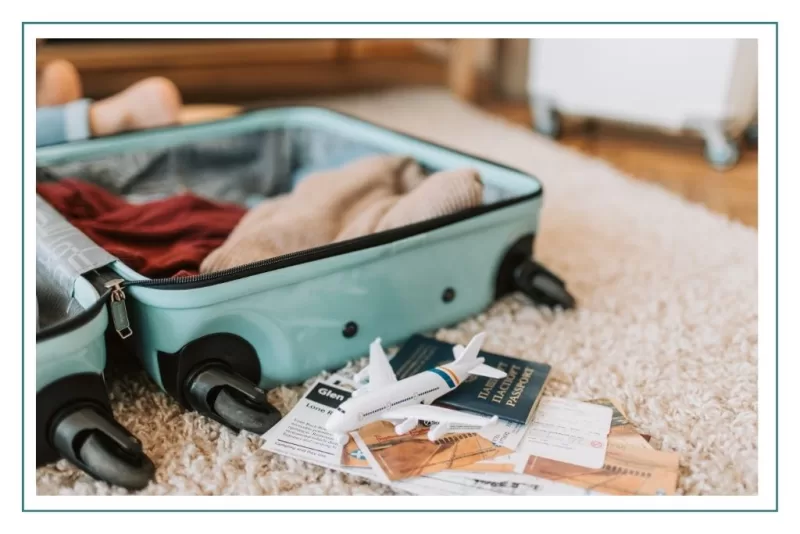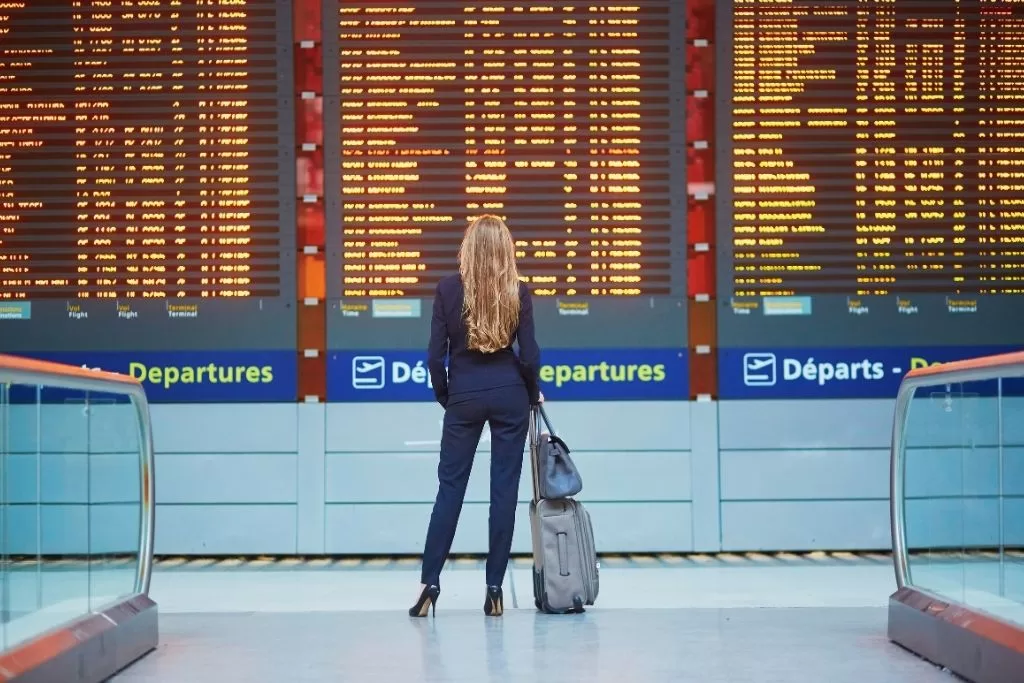Essential Tips for International Travel
Traveling internationally is an exciting adventure that broadens horizons and offers new experiences. Whether you’re a seasoned globetrotter or embarking on your first journey abroad, preparing well can make a significant difference in your travel experience. Here are ten things I recommend to ensure a smooth and enjoyable trip.
- 1. Research Your Destination
- 2. Organize Travel Documents
- 3. Take Appropriate Health and Safety Precautions
- 4. Plan Your Finances
- 5. Pack Smart
- 6. Stay Connected
- 7. Learn Basic Phrases
- 8. Respect Local Customs
- 9. Use Public Transportation
- 10. Stay Flexible and Open-Minded
- BONUS TIP: Prepare for Foreign Electrical Outlets
1. Research Your Destination
Before you set foot in a new country, it’s crucial to conduct thorough research. Understanding the cultural norms, language, climate, and local customs of your destination can significantly enhance your travel experience. Familiarize yourself with the history and traditions of the place to appreciate its uniqueness better. This knowledge can help you avoid unintentional faux pas and show respect to the locals, which can lead to more enriching interactions.
Moreover, researching your destination allows you to plan your itinerary more effectively. Look into popular attractions, hidden gems, local events, and festivals that might be happening during your visit. Knowing what to expect weather-wise can also help you pack appropriately, ensuring you’re comfortable throughout your trip. Additionally, being aware of any travel advisories or safety concerns is essential for staying safe while exploring a new country.
2. Organize Travel Documents
Keeping your travel documents organized is paramount. Ensure your passport is valid for at least six months beyond your planned return date, as many countries and cruise lines have this requirement. Some destinations also require visas, so check the visa requirements well in advance and apply as necessary.
In addition to physical copies, consider digital backups. Email copies to yourself or store them in a cloud service for easy access. It’s also a good idea to have a printed list of emergency contacts, including the nearest embassy or consulate of your home country. This preparation can save you a lot of stress and hassle in case of any unforeseen circumstances during your travels.
It is a good idea to make photocopies of your passport, ID, and credit cards. Leave one set of copies at home with a trusted friend or family member, and store one set of copies in a different piece of luggage than your actual passport. In the event that any of your documents get lost or stolen, this will help expedite the process of getting replacements.
If you need to apply for a new passport or renew or update your current passport, you can do that HERE.

3. Take Appropriate Health and Safety Precautions
Health should be a top priority when traveling internationally. Check if any vaccinations or medications are required or recommended for your destination. Visit a travel clinic or consult your healthcare provider well in advance to get the necessary immunizations. Additionally, pack a travel health kit that includes basic first-aid supplies, any prescription medications, and items like insect repellent, sunscreen, and over-the-counter remedies for common travel ailments.
Safety is equally important. Research the safety situation in your destination and stay informed about any potential risks. Register with your embassy or consulate if they offer this service, so they can assist you in case of an emergency. Keep a low profile, avoid risky areas, and stay aware of your surroundings. Use a money belt (I recommend this one that goes around your waist, or this one that hangs around your neck) or a secure bag to carry your valuables and consider using a hotel safe for passports and extra cash.
4. Plan Your Finances
Contact your financial institutions before you leave to let them know your travel dates so they won’t flag any charges as suspicious and suspend your card usage. It’s wise to carry a mix of payment methods, including credit/debit cards and some local currency. Research the exchange rates and decide whether it’s better to exchange money at home, at the airport, or at your destination. Be aware of any foreign transaction fees your bank may charge.
Estimate the costs of accommodation, food, transportation, and activities to set a budget and avoid overspending. Always have a financial cushion for emergencies. It’s also helpful to research ahead of time the norms for tipping in the locations you will be traveling, as customs vary widely from country to country.
5. Pack Smart
Packing efficiently can greatly enhance your travel experience. Start by making a packing list tailored to your destination and activities. Prioritize versatile clothing that can be layered and mixed and matched. Consider the climate and local dress codes to ensure you’re comfortable and respectful. Invest in travel-sized toiletries and use packing cubes to organize your belongings and maximize space in your suitcase.
Don’t forget essential items like electrical outlet adapters (see more info below), chargers, and a portable power bank for your electronics. Pack a reusable water bottle to stay hydrated. A small first-aid kit, snacks, medications, and copies of important documents should also be in your carry-on. By packing smart, you’ll avoid overpacking and have everything you need for a smooth journey.
**Pro Tip: Take photos of the outside and the contents of your luggage to have on hand in the event it is lost or damaged and you need to file a claim.

6. Stay Connected
Staying connected while traveling internationally can make your trip more convenient and safe. Research your options for staying online, such as international phone plans, local SIM/eSIM cards, or portable Wi-Fi devices. Having reliable internet access allows you to use maps, translation apps, and stay in touch with family and friends. Download essential apps before your trip, such as navigation tools, language translators, and local transport apps. I have a post all about how to stay connected while traveling abroad HERE.
It’s also wise to have a plan for communication in case of emergencies. Ensure your phone is unlocked if you plan to use a local SIM card. Carry a list of important contacts, including local emergency numbers and the contact information for your accommodations. Staying connected helps you navigate new places with ease and provides peace of mind knowing you can reach out for help if needed.
7. Learn Basic Phrases
Learning a few basic phrases in the local language can significantly enhance your travel experience. Even if you’re not fluent, knowing how to say “hello,” “thank you,” “please,” and “excuse me” can go a long way in building rapport with locals. It shows respect and effort, which is often appreciated. Invest some time into learning key phrases related to directions, ordering food, and asking for help.
Many language learning apps and online resources can help you with pronunciation and vocabulary. Carry a small phrasebook or flashcards, or download a translation app for quick reference. In addition to making interactions smoother, knowing some of the local language can help you navigate better and feel more connected to the culture of the place you’re visiting.
8. Respect Local Customs
Respecting local customs is essential for a positive travel experience. Each country has its own set of social norms and etiquette, which may differ significantly from your own. Research these customs in advance to avoid any inadvertent disrespect. For instance, in some cultures, it’s considered rude to point with your finger, while in others, showing the soles of your feet is a sign of disrespect. Understanding these nuances can help you navigate social interactions more smoothly.
Dress codes can vary widely, especially when visiting religious sites. Make sure to dress modestly and appropriately according to local expectations. Being aware of dining etiquette is also important. For example, in some cultures, it’s customary to finish all the food on your plate, while in others, leaving a bit of food signifies that you’re satisfied. By respecting local customs, you show appreciation for the culture and foster positive relationships with the people you meet.

9. Use Public Transportation
Using public transportation is often the most efficient and cost-effective way to get around in a new city. Research the public transit options available at your destination, such as buses, trains, trams, and subways. Many cities have apps and websites that provide real-time transit information, routes, and schedules. Familiarize yourself with the ticketing system, and consider purchasing a transit pass if you’ll be using public transport frequently.
Public transportation also gives you a chance to experience the local way of life. You’ll see how locals commute, observe daily routines, and get a different perspective of the city. Plan your routes in advance, and always keep an eye on your belongings, as public transport can sometimes be crowded.
10. Stay Flexible and Open-Minded
Traveling can be unpredictable, and things don’t always go as planned. Maintaining flexibility and an open mind can help you handle unexpected situations with ease. Embrace the uncertainties and view them as part of the adventure. Whether it’s a missed connection, a sudden change in weather, or an unplanned detour, staying adaptable will make your trip more enjoyable.
Being open-minded allows you to fully immerse yourself in new experiences and cultures. Try local foods, participate in cultural activities, and engage with the people you meet. Keep a positive attitude and be willing to step out of your comfort zone. This mindset will enrich your travels and lead to memorable experiences that you might not have had otherwise.
BONUS TIP: Prepare for Foreign Electrical Outlets
When traveling internationally, chances are you may need to take an outlet adapter. Electrical outlets in other countries are different from the ones we use in the U.S. Below is a chart for reference. *Note: Cruise ships typically have both U.S. outlets and European outlets in staterooms. You can purchase a universal outlet adapter HERE.

- Type A – Canada, United States, Japan, and Mexico
- Type B – Canada, United States, and Mexico
- Type C – Widely used throughout Asia, Europe, and South America (Purchase a type C adapter HERE.)
- Type D – India
- Type E – Belgium, Czechia, France, Poland, and Slovakia
- Type F – Commonly used in Europe and Russia (Purchase a type F adapter HERE.)
- Type G – Widely used in the Arabian Peninsula and United Kingdom, as well as in Ireland, Malaysia, Malta, and Singapore
- Type H – Israel, the Gaza Strip, and the West Bank
- Type I – Australia, Argentina, China, and New Zealand
- Type J – Only used in Liechtenstein and Switzerland
- Type K – Only used in Denmark and Greenland
- Type L – Only used in Chile and Italy
- Type M – Only used in South Africa
- Type N – The International Electrotechnical Commission (IEC)’s choice for the standard universal plug. Mainly used in Brazil and South Africa.
- Type O – Only used in Thailand
International travel is a rewarding experience that offers countless opportunities for personal growth and cultural enrichment. By following these tips, you can ensure a smoother, safer, and more enjoyable journey. From researching your destination and organizing travel documents to respecting local customs and staying flexible, each tip plays a crucial role in enhancing your travel experience. So, pack your bags, prepare well, and get ready to explore the world with confidence and excitement. Happy travels!
